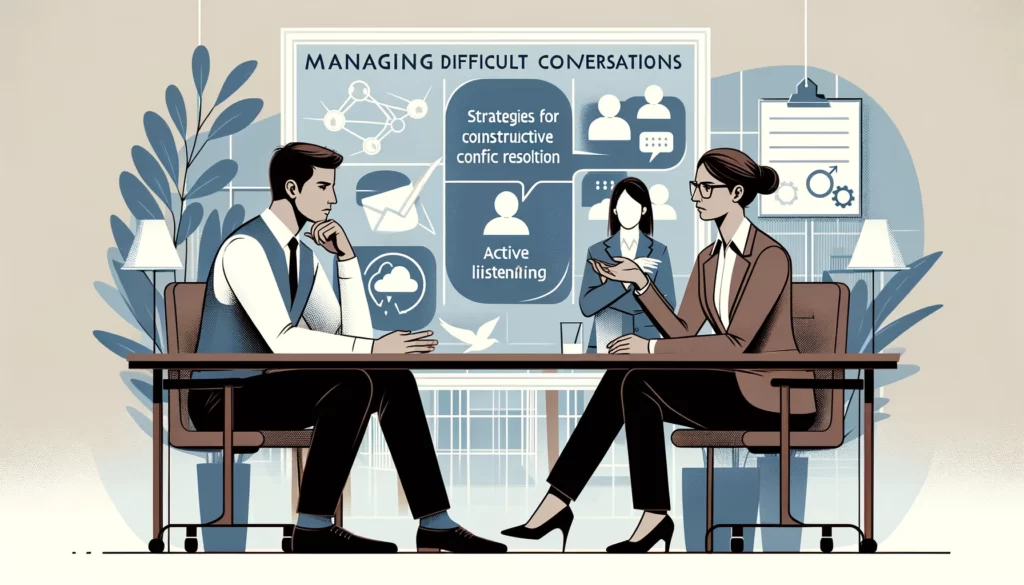Difficult conversations are inevitable in both personal and professional settings. Whether it’s addressing performance issues with a colleague or resolving conflicts with a business partner, the ability to manage these conversations effectively is crucial for maintaining healthy relationships and achieving positive outcomes. Here are some strategies for constructive conflict resolution: Prepare Mentally: Before entering […]

Negotiation is often perceived as a high-stakes game requiring assertiveness and unwavering confidence. However, for many individuals, self-doubt can undermine their ability to negotiate effectively. Whether it stems from past experiences, fear of rejection, or imposter syndrome, self-doubt can sabotage negotiation efforts and hinder success. Fortunately, there are strategies that can help individuals build confidence and navigate negotiations with assurance and poise.
First and foremost, it’s essential to recognize that feeling nervous or uncertain before a negotiation is perfectly normal. Rather than trying to suppress these feelings, acknowledge them and reframe them as a natural response to a challenging situation. Remember that everyone experiences self-doubt at times, even the most seasoned negotiators.
Preparation is key to overcoming self-doubt and instilling confidence in negotiations. Take the time to thoroughly research the subject matter, understand your own priorities and objectives, and anticipate potential objections or challenges. The more prepared you are, the more confident you will feel going into the negotiation.
Another effective strategy is to practice visualization techniques to mentally prepare for the negotiation. Picture yourself entering the negotiation room with confidence, articulating your points persuasively, and achieving your desired outcomes. Visualizing success can help boost self-confidence and reduce anxiety.
During the negotiation itself, focus on maintaining a positive mindset and projecting confidence through your body language and demeanor. Stand tall, make eye contact, and speak clearly and assertively. Remember to listen actively to the other party’s perspective and respond calmly and rationally to any objections or challenges that arise.
It’s also important to be flexible and open-minded during negotiations. Recognize that concessions and compromises are often necessary to reach a mutually beneficial agreement. Instead of viewing concessions as a sign of weakness, frame them as strategic moves aimed at achieving your overall objectives.
Finally, don’t be too hard on yourself if negotiations don’t go exactly as planned. Even the most skilled negotiators encounter setbacks from time to time. Instead of dwelling on perceived failures, focus on what you can learn from the experience and use it to improve your skills for future negotiations.





